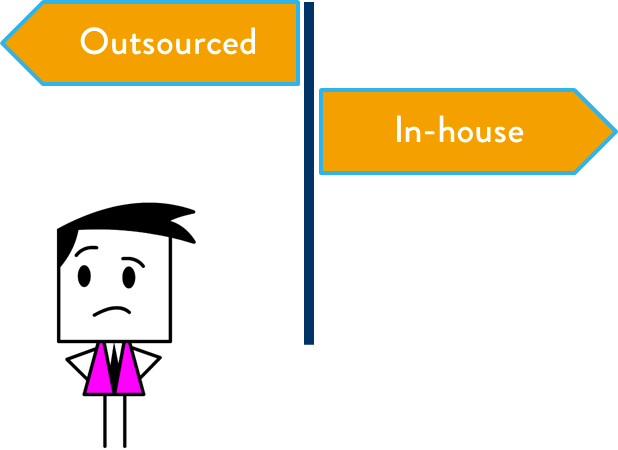Marketing has never been easier or more complex, both at the same time. This may sound contradictory but this is the dilemma most organisations face in today’s digital world. It’s easier because there are so many channels to get your message across and if you’re savvy, you can do this at a relatively low cost. It’s complex because how on earth do you devote enough time, resource and creativity to it? There are only so many hours in the day and so many people you can employ to do it, so how can you determine what’s going to work best and where you should be concentrating your efforts?
One answer which at some point everyone will have thought about is outsourcing, whether it’s the time consuming creative or the laborious but necessary research, outsourcing this to specialist providers can pay dividends. So why then do some people shudder when outsourced marketing is mentioned?
One of the key difficulties with outsourcing any part of your marketing is that it is unique to your company; often you cannot go out and buy an off the shelf solution that will meet your needs.
In an ideal world, every company would have enough time, budget, experience and space to keep a fully functioning marketing department operational. What happens if you don’t; how can you make sure you choose that right partner to outsource to?
- Talk to as many suppliers as possible. Check that they are listening and understand your problems; don’t be afraid to test them. This should be the case regardless of whether you are talking to a creative agency or a telemarketing firm.
- Don’t just stick locally. We all know it’s great to support local business, however this is only the case if they can support you. Yes it’s nice to drop into an office, however the whole point of outsourcing is that you don’t have be around to manage that bit of work. In the days of the mobile phone, video calling, skype, Google Drive and Basecamp, a project can be efficiently run from the other end of the country. The only proviso is that they should at least be in the same time zone as you to make communicating on your terms easier.
- Ask potential suppliers how and when they communicate. Regular, unprompted and clear communication is vital for both sides. Agree this upfront.
- Prepare a standardised brief that you can use for all potential suppliers. This should clearly state the activities you want carried out and the timescales as well as all the key contacts for the project.
- Get everything in writing! Always check the contract and the small print. For things like lead generation, make sure there is a two way service level agreement (SLA) in place to ensure feedback is passed both ways and you know what the agency expects from you.
We all know there’s a big trust element to any kind of outsourcing you do and that’s why some organisations shy away from it. However, if you can work with the right people, bring in the appropriate skill sets and be clear on what you want to achieve, then outsourcing can have some major advantages.









